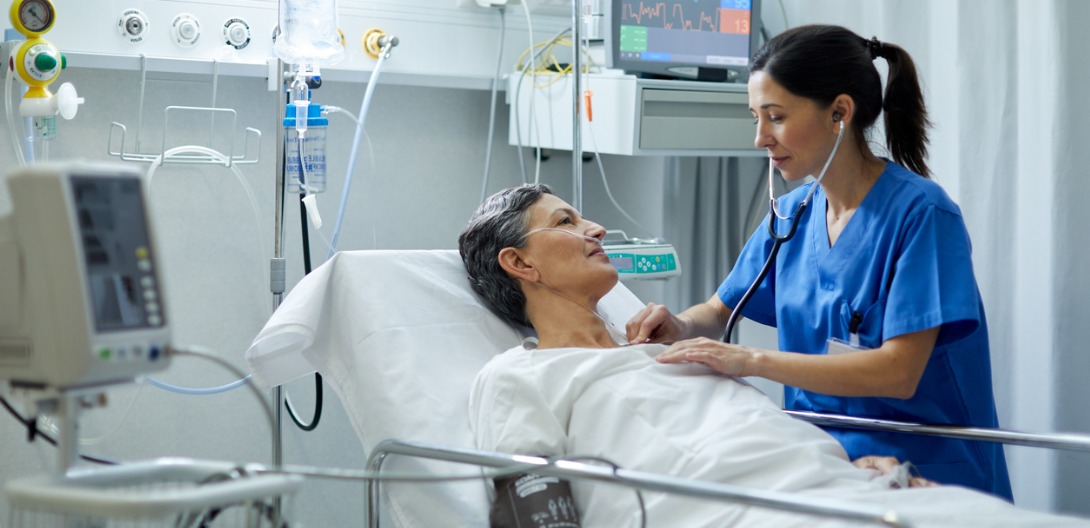After 20 years as a Physiotherapist specialising in musculoskeletal medicine and occupational health, Mike decided to take on a new challenge in his life and start an Advanced Practice MSc. Mike spoke to us about how BMJ Best Practice is supporting him to get access to the latest clinical information, particularly emergency care content, quickly and easily.
Keen to find out more about Mike and his role in healthcare, we asked him a few questions on what the best and hardest parts of his job are. We also spoke about his goals for the year ahead.
“Putting my skills and knowledge into practice and expanding my role is definitely the best part of my role. Whilst the hardest part is keeping up with timelines and demands. It is hard to keep a work-life balance with the amount of study that is involved. My biggest goal and challenge is to complete my masters by the end of the year and then to settle down into my new role.”
Healthcare professionals’ roles are ever adapting and evolving. Interested to hear Mike’s first-hand experience of this change over the past 20 years that he has been practising, he told us that:
“As a physiotherapist, we are very focused on using evidence-based practice these days. When I first started, the focus was on learning from your mentors and peers, in addition to non-academic practical based courses after graduating from university as a physiotherapist. Whereas today, the opportunities within the profession have significantly grown for areas to specialise in. There are also expanding roles available, like the MSc I am completing to qualify as an Advanced Practitioner, where the specific professions are to a degree merged. Physiotherapists are now undertaking some of what would have been regarded as traditional medical roles – doctor-type roles or nursing roles, as well.”
With this shift in mind, we asked Mike what supports him most in his clinical decision making, for diagnosis or prescribing care:
“I like to use the Trust’s guidelines and then use BMJ Best Practice to read up on the evidence behind the Trust guidelines. It is a really helpful combination to support my clinical decision making. The topics and content that I’ve mainly been utilising, which goes hand in hand with the MSc that I’ve been doing in Advanced Practice, is in Emergency Care. Therefore, mainly search for acute medical conditions on BMJ Best Practice. That’s everything from community-acquired pneumonia to skin rashes and everything in between.”
"I like to use the Trust’s guidelines and then use BMJ Best Practice to read up on the evidence behind the Trust guidelines. It is a really helpful combination to support my clinical decision making."
Mike Sleap, Trainee Advanced Practitioner
We asked Mike to tell us how he has applied new knowledge from BMJ Best Practice into his clinical practice:
“As part of the MSc in Advanced Practice, I have had to complete 100 case studies. Each of these case studies has at least one or two learning outcomes from them. The most accessible and easy way to achieve these learning outcomes has been to read up on certain conditions within BMJ Best Practice and then use that to support the learning outcomes. All of the content is up to date and sources and references very relevant. BMJ Best Practice has helped me to practice using evidence-based knowledge. It is the easiest way I have found to access clinical content quickly. It is really easy to navigate the site to get relevant information.”
“BMJ Best Practice has helped me to practice using evidence-based knowledge. It is the easiest way I have found to access clinical content quickly. It is really easy to navigate the site to get relevant information.”
Mike Sleap, Trainee Advanced Practitioner
Mike told us that colleagues on his master’s course have also been using BMJ Best Practice regularly. Mike added:
“I would recommend it for anyone undertaking an MSc in Advanced Practice. I would also recommend it to undergraduate and other post-graduate students. They would all find BMJ Best Practice very relevant and helpful.
We closed by asking Mike one final question. What would you say to your colleagues who have not used Best Practice yet?
“It is a great overall source of accessing evidence-based knowledge. What have you been waiting for? Go ahead and try it. It’s very easy to use and all the information is there.”






